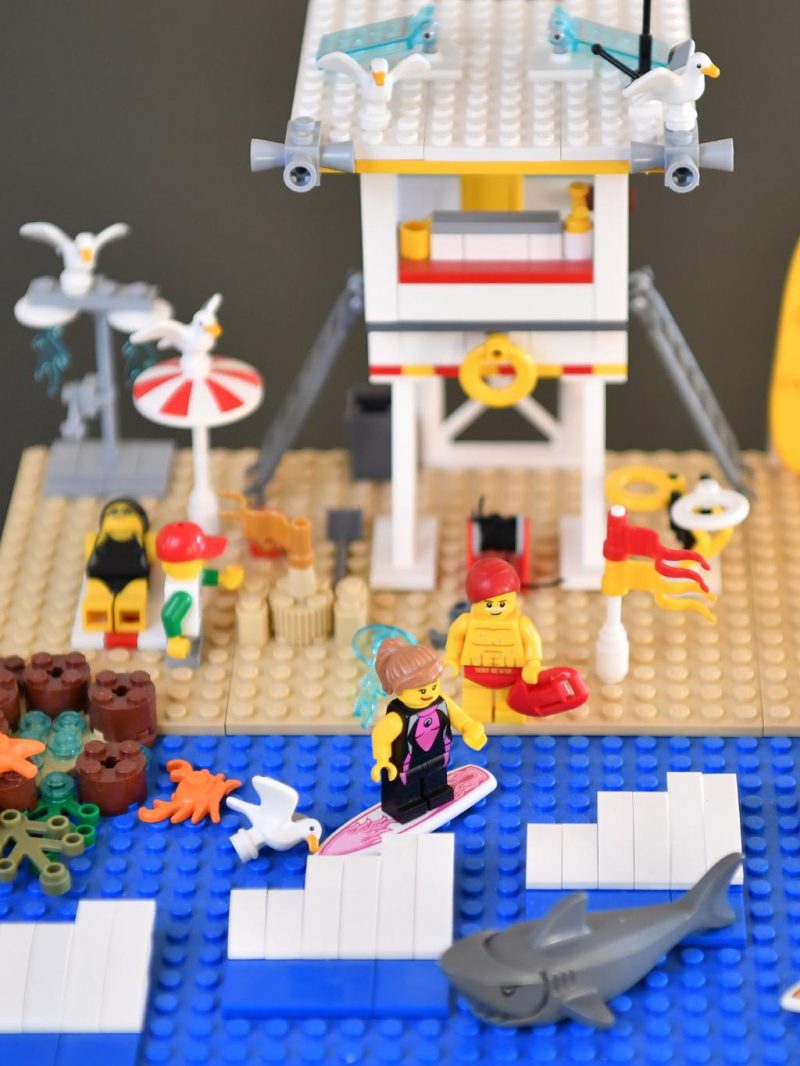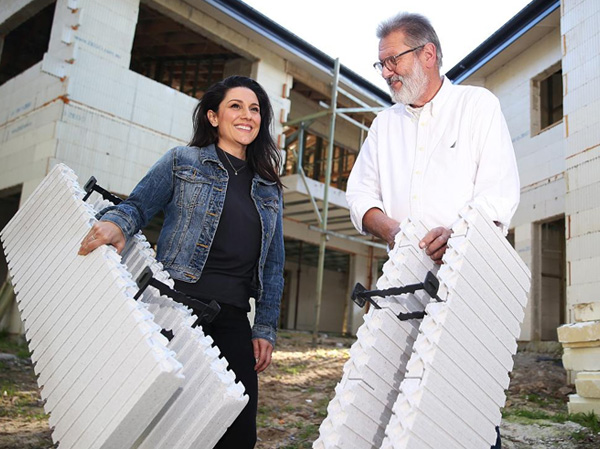HOUSE hunters are turning to a form of high concept building blocks similar to Lego to save on their building and electricity costs.
The precast insulated polystyrene blocks known as Zego fit together like the famous Danish toys, allowing homes to be built faster and up to 80 per cent more energy efficient.
The Canadian concept is no stranger to Australia having been introduced in 2001 but has recently been getting more popular due to skyrocketing electricity and housing costs.
Australian suppliers have reported a recent 5-10 per cent surge in sales across construction hot spots such as Kellyville, Penrith, and the Ermington.

Zego managing director Scott Evans said the spike in interest was due to home builders’ growing awareness of energy ratings in the wake of unprecedented electricity increases.
This year alone, major energy providers have increased NSW electricity prices by about 15-20 per cent.
Zego’s precast shapes are made of a strong insulator which reduced the need for heating and cooling, Mr Evans said.
Stacking the shapes on top of each other similar to Lego bricks also allowed for faster construction than brick veneer building methods, he said.
This had made the concept particularly appealing for property investors and developers who were struggling to saddle the costs of holding properties while homes were being built.
Vacant blocks of Sydney land typically cost more than $450,000, while buying an established house for a knock down rebuild project costs an average of $960,000 — a 67 per cent increase from five years ago, CoreLogic data showed.

Jade Cooper is currently building a new home in Kellyville with Zego after getting encouragement from her father architect Roel Mulder to use the materials.
Mr Mulder had used Zego in the design of numerous homes and thought it would make the project easier.
“It is structurally sound, can be used in bushfire zones and is cyclone proof,” Mr Mulder said.
Builder Elie Farah of Effective Building and Construction said the absence of conventional bricks meant Zego homes were cheaper to construct.
“There is less wastage and it’s a lot more efficient,” he said.

Zego’s growing popularity comes as a recent study revealed even those building with conventional methods could nab homes for up to $100,000 cheaper than those buying existing homes.
The research from technology company House and Land showed newly built homes were on average 13.9 per cent cheaper than established dwellings.
This was largely due to the greater supply of sites available for new construction and less competition for new builds.
The price difference meant a buyer of a typical established dwelling priced at $900,000 could nab a property built from scratch with similar fittings and features for about $775,000.





